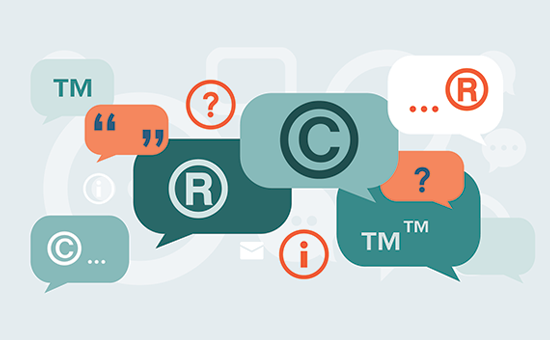As the other answers already noted, neither names nor words can be
copyrighted. A copyright protects art displays, performances and written works (this
extends to modern technology such as websites, illustrations, television and
film).
The protection of words, marks and names is done with registered
trademarks. Just like the official copyright symbol is a “C” inside a circle, the
registered trademark symbol is the letter “R” inside of a circle. The TM for
trademark and SM for service mark are not recognized by the patent trademarks
and copyright office. Some states may recognize them, but they are the weakest
form of protection.
You should also know that you are not prohibited from using trademark names
in your own works, but you must not represent yourself as the trademark holder
or imply that your product is the trademarked product. This is why restaurants
are so quick to note that they serve Coke or Pepsi products if you order a
brand name drink which they do not serve. (As an ironic aside. The concession
for Hartsfield Atlanta Airport is held by PepsiCo, in Coca-Cola’s home city.)
There is a lot more to know about trademarks and copyrights. If you are a graphic
artist, the handbooks from the American Institute of Graphic Arts (AIGA) and
the Graphic Artists Guild (GAG) are excellent references on this topic. I’m
certain there are similar resources for writers, other artists and businesses.
My advice is to find a good reference and to read it very very carefully and
after you have read the basics, if there is anything that you don’t understand
or that still puzzles you about your project, consult an intellectual
property attorney before you make a very costly mistake.





























